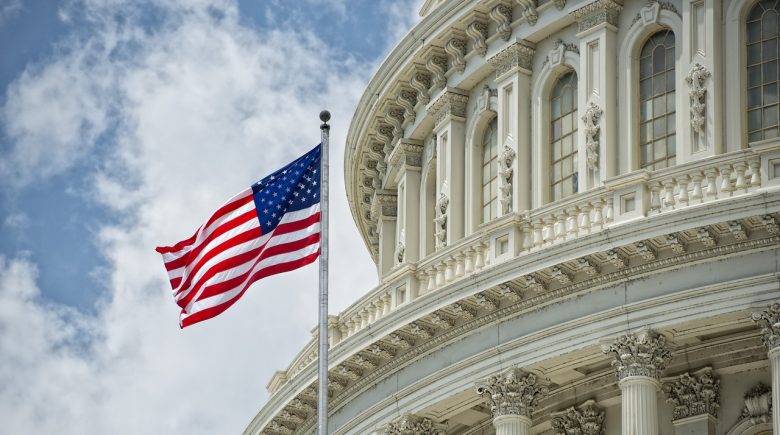Time is running out… If Congress doesn’t pass a spending bill by the end of this week, the federal government will run out of money and shut down.
Shutdowns don’t come cheap. The last time the government was forced to close up shop — for 16 days in late 2013 — it cost taxpayers $2 billion in lost productivity, according to the Office of Management and Budget. Two earlier ones — in late 1995 and early 1996 — cost the country $1.4 billion.
If Congress fail to pass the bill, the result would be a partial government shutdown in which most services would stop except those deemed “essential” — such as national security work performed by the Department of Homeland Security and the FBI. Active duty military personnel would not be furloughed, but roughly 40% of non-defense employees would be.
Every shutdown is different because federal agencies have quite a bit of leeway in deciding how to carry it out. But, based on previous shutdowns, here’s what you can expect:
1) What about my Mail?
The U.S. Postal Service is an independent agency that does not receive tax dollars to operate. It is funded through the sale of stamps and other products and services. Therefore the US Postal Service works through shutdowns as well
2) Your Social Security $$$:
Social Security is a mandatory program that will continue even if Congress fails to pass a spending bill. Social Security payments were sent during the last shutdown.
3) Vacation plans:
If you planned on going to National Parks / Zoos / Museums you will need to come up with a backup plan because all those sites will be closed. During past shutdowns, the National Park Service has had to close its parks and historic sites, which range from the Grand Canyon National Park in Arizona to the Statue of Liberty National Monument in New York Harbor.
4) Passport Services:
If you planning on going overseas and need a new passport, you better act fast… The State Department’s passport service is funded partly by fees, which means it is not completely dependent on Congress for money and may be able to continue to issue passports for at least a short time.
5) Planes, Trains and Automobiles:
Airports would remain open and air traffic controllers and Transportation Safety Administration security officials would remain on the job. However, there could be some delays as “non-essential” employees are furloughed.
You should also still be able to travel by rail. Although Amtrak depends on federal subsidies, it gets much of its revenue from ticket sales and has managed to stay open during past shutdowns.
6) Taxes:
The IRS will continue collecting taxes, so a shutdown won’t get you off the hook for paying what you owe. US bonds would still be issued. And other essential banking functions will go on. However, your tax refund may be delayed…
Time is running out… If Congress doesn’t pass a spending bill by the end of this week, the federal government will run out of money and shut down.
Shutdowns don’t come cheap. The last time the government was forced to close up shop — for 16 days in late 2013 — it cost taxpayers $2 billion in lost productivity, according to the Office of Management and Budget. Two earlier ones — in late 1995 and early 1996 — cost the country $1.4 billion.
If Congress fail to pass the bill, the result would be a partial government shutdown in which most services would stop except those deemed “essential” — such as national security work performed by the Department of Homeland Security and the FBI. Active duty military personnel would not be furloughed, but roughly 40% of non-defense employees would be.
Every shutdown is different because federal agencies have quite a bit of leeway in deciding how to carry it out. But, based on previous shutdowns, here’s what you can expect:
1) What about my Mail?
The U.S. Postal Service is an independent agency that does not receive tax dollars to operate. It is funded through the sale of stamps and other products and services. Therefore the US Postal Service works through shutdowns as well
2) Your Social Security $$$:
Social Security is a mandatory program that will continue even if Congress fails to pass a spending bill. Social Security payments were sent during the last shutdown.
3) Vacation plans:
If you planned on going to National Parks / Zoos / Museums you will need to come up with a backup plan because all those sites will be closed. During past shutdowns, the National Park Service has had to close its parks and historic sites, which range from the Grand Canyon National Park in Arizona to the Statue of Liberty National Monument in New York Harbor.
4) Passport Services:
If you planning on going overseas and need a new passport, you better act fast… The State Department’s passport service is funded partly by fees, which means it is not completely dependent on Congress for money and may be able to continue to issue passports for at least a short time.
5) Planes, Trains and Automobiles:
Airports would remain open and air traffic controllers and Transportation Safety Administration security officials would remain on the job. However, there could be some delays as “non-essential” employees are furloughed.
You should also still be able to travel by rail. Although Amtrak depends on federal subsidies, it gets much of its revenue from ticket sales and has managed to stay open during past shutdowns.
6) Taxes:
The IRS will continue collecting taxes, so a shutdown won’t get you off the hook for paying what you owe. US bonds would still be issued. And other essential banking functions will go on. However, your tax refund may be delayed…



